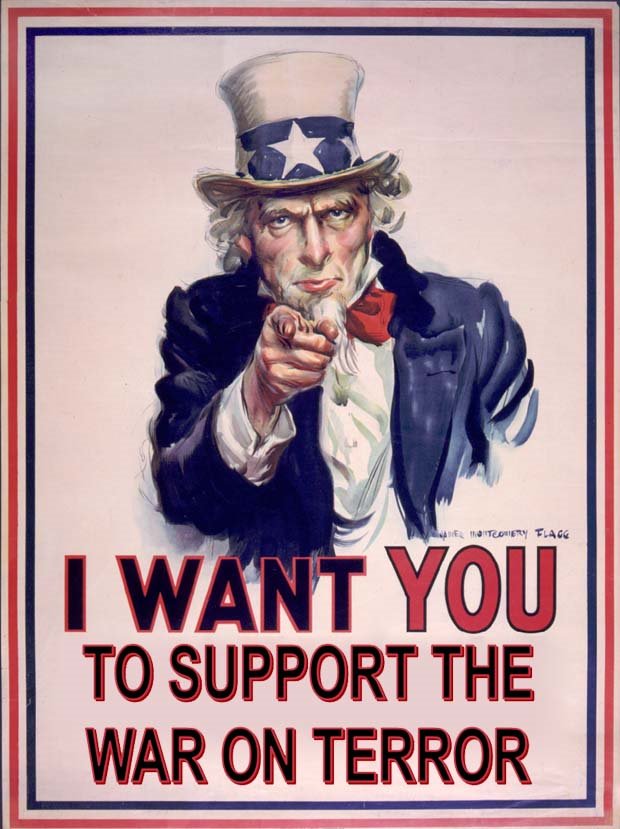 One of the unfortunate results of the news regarding the latest foiled terrorist attack in London is that it will inevitably distract from a point that James Fallows (previous posts here) makes in this excellent Atlantic Monthly article — we’ve won the War on Terror.
One of the unfortunate results of the news regarding the latest foiled terrorist attack in London is that it will inevitably distract from a point that James Fallows (previous posts here) makes in this excellent Atlantic Monthly article — we’ve won the War on Terror.
In preparing the AM article, Fallows — who is of America’s most gifted investigative reporters on foreign policy and military issues — interviewed over 60 leading terrorism analysts and concludes that terrorists, through their own efforts, can damage, but not destroy us. Their real destructive power lies in what they can provoke us to do. Fallows goes on to observe that if we allow fear rather than reason to control our reaction to terrorism, then groups such as Al Qaeda can provoke the US into launching unnecessary wars that are far more damaging to our ultimate cause than the terrorist attack that provoked the war in the first place. Accordingly, Fallows urges in the article that the US drop the war metaphor in continuing its fight against groups such as Al Qaeda.
As we assess further information regarding the London airline terrorist plot, Fallows’ cogent optimism reminds us that fear is the fuel for demagogic threats to the freedom that we most cherish. Check it out.
Update: Stratfor echos Fallows’ optimism in his pre-London terrorist plot article with this post-plot analysis:
There are four takeaway lessons from this incident:
First, while there obviously remains a threat from those not only sympathetic to al Qaeda, but actually participating in planning with those in the al Qaeda apex leadership, their ability to launch successful attacks outside of the Middle East is severely degraded.
Second, if the cell truly does have 50 people and 21 have already been detained, then al Qaeda might have lost its ability to operate below the radar of Western — or at least U.K. — intelligence agencies. Al Qaeda’s defining characteristic has always been its ability to maintain operational security. If that has been compromised, then al Qaeda’s importance as a force has diminished greatly.
Third, though further attacks could occur, it appears al Qaeda has lost the ability to alter the political decision-making of its targets. The Sept. 11 attack changed the world. The Madrid train attacks changed a government. This failed airliner attack only succeeded in closing an airport temporarily.
Fourth, the vanguard of militant Islamism appears to have passed from Sunni/Wahhabi al Qaeda to Shiite Iran and Hezbollah. It is Iran that is shaping Western policies on the Middle East, and Hezbollah who is directly engaged with Israel. Al Qaeda, in contrast, appears unable to do significantly more than issue snazzy videos.
Will Wilkinson agrees and notes that the response in terms of airline security needs to be proportionate to the true risk.

I am not sure I agree with ‘winning the war on terrorism’.
1. I don’t believe this is a ‘war’. Terrorism isn’t a country on which to declare war. It’s a ‘movement’. Let us hope that the results of a war on a non-country entity donít end up like:
‘the war on poverty’, or ‘the war on drugs’. (Fallows also suggests dropping ‘war on__’.
2. Terrorism has always been with us. It is ‘extremism’. In the old days, it was called ‘piracy’ (in some ways). Even older days terrorism was called ‘barbarianism’.
There always needs to be vigilance against piracy, and or extremism. There will always be some extreme group with a grudge, and outlaw ways of obtaining their goals.
3. An analysis of the Middle East is clear as mud. As pointed out the Hezbollah/Shiites seem to be ascendant over al Queda/Sunnis/Hammas. However that is not like giving control to the Boy Scouts.
In an unexpected turn, and to their great surprise, the Iranians/Shiites now are increasing influence. I don’t believe this is any defeat for terrorism, but rather a replacement of one team for another in the ‘wild card race’.
—
In the end I agree with the overall tenor of the articles. Despite ruthless attacks, the terrorists are unable to topple current governments.
However, terrorism has forced us into making some unsavory and expensive choices — drastic security measures v. convenience at airports. Terrorism, has also changed the geopolitical landscape of the Middle East in ways that are unpredictable. Ouch!
Gary, although it was beyond the scope of this particular article, Fallows has been fairly outspoken in opposing the Bush Administration’s “War on Terror” and the Iraq War, particularly the handling of the aftermath of the war. What’s particularly interesting about Fallows opposition is that he was a supporter of Cheney and Rumsfeld when they were two young Reagan Administration officials in the early 1980’s leading that Administration’s efforts to revitalize and modernize America’s armed forces.